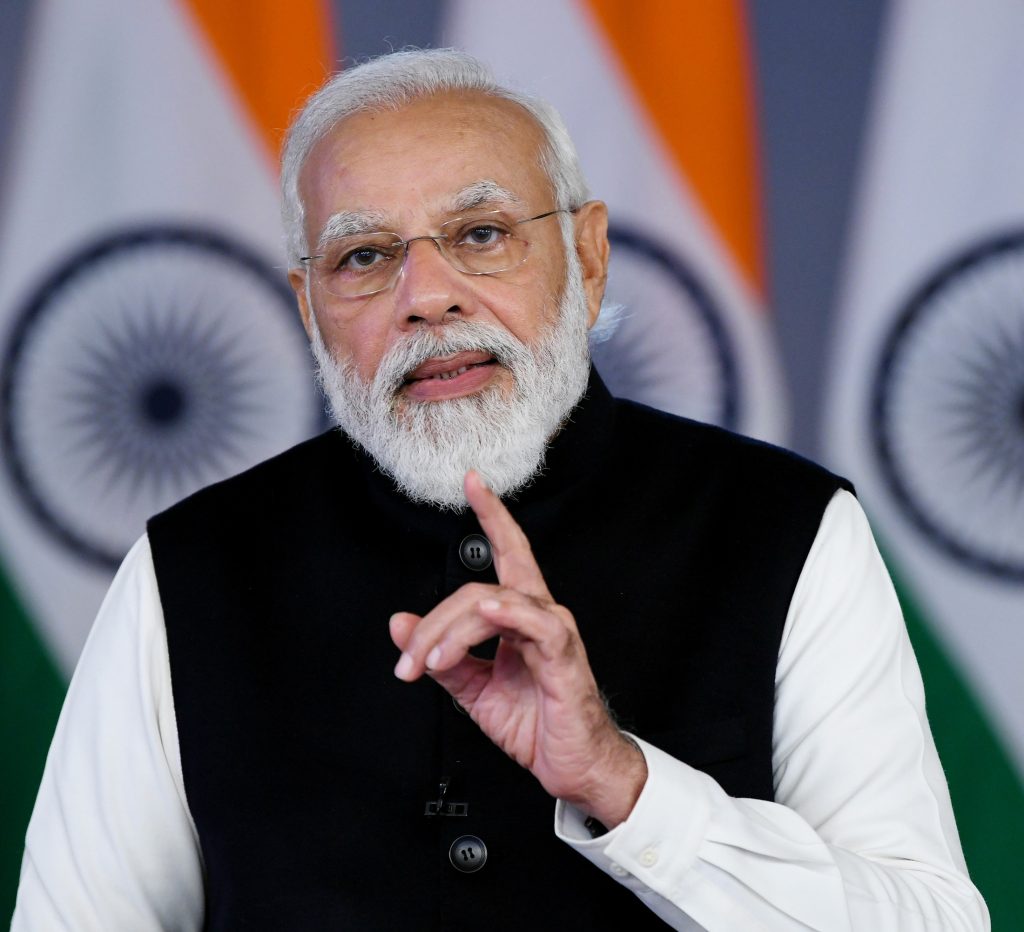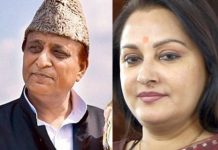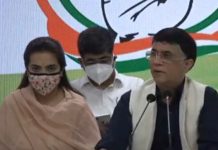
This prickly issue has earlier been taken up by multiple bodies including a parliamentary standing committee, the law commission and the election commission but consensus eluded every time because of conflicting interests of the Union and the states, writes Mudit Mathur
The concept of simultaneous Lok Sabha and state assembly elections is not something new, but its implementation may pose challenges in a parliamentary democracy with a federal structure. The country held simultaneous elections to Lok Sabha and state assemblies since 1952 and continued this practice till 1967. Thereafter irreversible action of premature dissolution of some State Legislative Assemblies transpired, using Article 356 in 1968 and 1969, coupled with the dissolution of the Lok Sabha itself in 1970 which derailed the founding pattern. This is how the cycle got disrupted and elections were conducted separately in accordance with a constitutionally fixed period of next five years from the date of its first meeting.
The decision of forming a committee on “one nation one election” caught opposition bloc INDIA. by surprise and raised political heat during the alliance’s conclave in Mumbai. The opposition alliance slammed the decision as a “threat” to the country’s federal structure. This prickly issue has earlier been taken up by multiple bodies including a parliamentary standing committee, the law commission and the election commission but failed to evolve unanimous consensus because of conflicting interests of the Union and the states.
Now out of the blue moon, the Union Law Ministry notified another committee on the ‘One Nation One Election’ under the chairmanship of former President of India, Ram Nath Kovind and seven other members. ‘One Nation One Election’ found place in BJP election manifesto along with uniform civil code, abolition of Article 370 and construction of Ram Mandir in Ayodhya. The opposition parties are highly critical of Kovind accepting the task after holding the highest constitutional office of India. The parties said he is expected to keep aloof from such political activities.
Prime Minister Narendra Modi had also stressed the need for debate and discussion on simultaneous elections in his Independence Day speech from the ramparts of the Red Fort in 2019. Union Home Minister Amit Shah, as BJP chief in 2018, had written to the Law Commission, urging him to examine the matter of simultaneous elections which will save government funds and ensure the country is not in election mode most of the time.
The idea of simultaneous elections, or “One Nation, One Election”, was first formally proposed by the Election Commission of India (ECI) in its 1983 report. The ECI suggested that conducting simultaneous elections to Lok Sabha and state legislative assemblies could reduce the frequency and associated costs of elections. Subsequently, the Law Commission of India headed by Justice BP Jeevan Reddy in 1999 also examined the issue and submitted several reports suggesting measures to synchronise the terms of the state legislatures with those of the Lok Sabha.
Former Prime Minister Atal Bihari Vajpayee was a vocal supporter of simultaneous elections. In 1999, he was elected to the Lok Sabha and he brought the idea with him. However, the proposal did not lead to legislative changes. Later in 2009, L. K. Advani made the same suggestion and also proposed a fixed term for legislatures. The Parliamentary Standing Committee on Personnel, Public Grievances, Law and Justice in its 79th Report in 2015 also concluded that simultaneous elections were required for long term governance. In 2017, the Niti Aayog released a paper titled ‘Election Time Table’, discussing the feasibility of simultaneous elections. It suggested a practical roadmap for implementing the concept. In 2018, the Law Commission of India released a draft working paper that outlined the legal and constitutional aspects of simultaneous elections.
And yet, it must also address concerns about the proposal being part of its larger political narrative to bring homogeneity in India which is acclaimed as the ‘land of diversity ‘– cohabitated with all the multi religions of the world with different ethnic groups – performing multiple cultures, myriad rituals and festivals, different foods, inimitable attires and about 1600 local and regional dialects. ‘One Nation, One Election’ may be a topic of discussion, but it has deeper challenges and problems. The most important of which are the challenges to federalism and democratic ethos.
The elements of plurality are inalienable features reflected in the composite cultural heritage of the nation. In such a conflicting background the idea of ‘one nation one election’ will have to pass the test of constitutionality as proposed step would amount to arbitrarily cut short the remaining fixed term of state assemblies against the spirits of democracy and thereby invite massive criticism of people being violative of doctrine of federalism which forms part of “Basic structure”. Basic structure doctrine evolves after the 7:6 apex court’s judgement in Kesavananda Bharti case that places restrictions on the amending power of parliament. So, it is not easy to do.
In the parliamentary history of free India, there is no precedent dragging a former president of India to indulge in political affairs relating to parliamentary deliberations after demitting the dignified office of the constitutional head of the nation. Kovind during his presidential address to members of both Houses of Parliament on June 20, 2019, had said, “One Nation, Simultaneous Elections is the need of the hour, which would facilitate accelerated development, thereby benefiting our countrymen.” He further described the proposal of ‘One Nation, Simultaneous Elections’ as “development-oriented”. Earlier, former President Pranab Mukherjee had also echoed the same view.
Seven other committee members which includes Home Minister Amit Shah, Adhir Ranjan Chowdhury, Leader of Congress Party in Lok Sabha, Ghulam Nabi Azad, a veteran parliamentarian and former Leader of the Opposition in Rajya Sabha, N.K Singh, a retired IAS officer and former Rajya Sabha MP, who also served as chairman of the 15th Finance Commission from 2017-2020, Retired Lok Sabha secretary-general Subhash C Kashyap, Harish Salve, an expert in constitutional, administrative, commercial and taxation laws, and Sanjay Kothari, a former Central Vigilance Commissioner (CVC) who had previously worked as secretary to former President Ram Nath Kovind from August 8, 2017 to April 24, 2020. Most of these members have already been articulating their views in favour of simultaneous elections to Lok Sabha and state assemblies.
However, in a letter written to Home Minister Shah, Congress leader Chowdhury declined to be part of the committee. “I have no hesitation whatsoever in declining to serve on the Committee whose terms of reference have been prepared in a manner to guarantee its conclusions. It is, I am afraid, a total eyewash,” he said in his letter.
Union Parliamentary Affairs Minister Pralhad Joshi said, “Right now, a committee has been constituted. A report from the committee will come out which will be discussed. The Parliament is mature, and discussions will take place, there is no need to get nervous. India is called the mother of democracy, there is always an evolution. I will discuss the agenda of the special session of Parliament.”
Chief General Secretary and National Spokesperson of the Janata Dal and former Rajya Sabha member K.C. Tyagi wrote an article on the subject highlightingd that, “One Nation, One Election may be a topic of discussion, but it has its challenges and problems. The most important of which are the challenges of federalism. India is a country of diversity, which has its federal structure with the division of powers between the central and state governments. Simultaneous elections are an attack on the autonomy and independence of state governments. This can not only weaken this federal structure but also increase the conflict of interest between the Centre and states.”
Tyagi stressed, “Amending the Constitution is a lengthy and politically challenging process that requires a two-thirds majority in both Houses of Parliament. States will also have to give consent. Due to the complex nature of the country’s political and constitutional framework, implementing One Nation, One Election in India presents many legal challenges.”
He said, “One Nation One Election has to face challenges of Constitutional amendments which require significant amendments to the Constitution, particularly, the provisions relating to the terms of elected bodies (Lok Sabha, state assemblies and local bodies). At least five articles of the Constitution — 83, 85, 172, 174 and 356 — and several statutory laws would have to be amended before any such proposal could be implemented. It will also be necessary for Union and state assemblies to have fixed tenures. This means that the House’s tenure cannot be extended at any cost, except in case of a declared emergency. It would also allow for the House to be dissolved before the expiry of its term.”
Terming the move amounts to an undemocratic attack on the constitutionally protected autonomy of the states, as it may disturb their independent functioning, Tyagi explained, “Coordinating the tenures of different levels of government (central, state, and local) to simultaneously coincide with the election cycle is legally complex. For example, the terms of state governments vary, and some states are given special provisions under Article 371 of the Constitution. State governments in India have a large degree of autonomy and can oppose any move that violates their powers”.
Most of the bureaucrats are just supporting the idea of ‘One Nation One Election.’ Former Secretary General of Rajya Sabha and eminent civil servant Yogendra Narain has been advocating for this cause. He served as Defence Secretary of the country with Defence Minister George Fernandes in the Atal Behari Vajpaiyee rule. He also served as chief secretary of Uttar Pradesh at crucial times besides being the first Chairman of Greater NOIDA and National Highways Authority of India. He has been actively involved in deliberations making public opinion in favour of the move.
Responding to the queries of Tehelka, Narain asserted, “This idea of simultaneous elections has been deliberated, discussed at various forums. The concept has been agreed to by the Law Commission, the Parliamentary Standing Committee, the Niti Ayog and the Election Commission. So, it is not a sudden idea of the present government. Secondly to legally support the concept of simultaneous elections, an amendment to the Constitution has to be done and this will again be deliberated in Parliament. Thirdly, a Fixed Term of legislatures Bill has to be passed (on the lines of the British Legislation) where again Parliament will discuss the whole question.”“The implementation of the concept does not adversely affect Federalism. This concept was accepted in the elections of 1952, 1957,1962 and 1967 and it had no effect on the Federal structure of India. So why now?,” Narain said.
Bureaucrat-turned-BJP politician K J Alphons, from Kerala who served the Modi government as Minister of State (Independent Charge) for Tourism, had also endorsed the views in support of the move. In a prominent national daily he wrote a lead article highlighting the benefits of simultaneous elections citing urgency in taking forward this idea.
However, former law minister and noted constitutional expert Kapil Sibal is not ready to buy bureaucratic views as he sees much deeper complications behind it. Sibal dismissed the main arguments in support of One Nation One Election. He said the claim that this would be cheaper shouldn’t be a significant concern for a country that boasts that it is the mother of democracy. He said the savings are minimal when you bear in mind the size of the Indian economy.
In an interview with a prominent anchor on public funded social media, Sibal claimed, “One Nation One Election will be the downfall of the Modi government”. “The Modi government is playing with fire and they will not simply sing their hands but destroy the government,” he remarked.
Sibal argued during his interview that One Nation One Election would create a situation that would require horse-trading and that would enhance political corruption and diminish and badly damage India’s democracy. Sibal also questioned the real intention of the Modi government in pursuing ONOE. “Is that they want to create through this mechanism a one-party state and, thereafter, convert India, officially and constitutionally, into a Hindu Rashtra?,” he wondered
Opposition leaders in India have criticised the Union government’s decision to form a committee to study ‘One Nation, One Election’, claiming it threatens the country’s federal structure. Congress president Mallikarjun Kharge, in a post on X, asserted that no matter how many “diversions and distractions” the ruling regime presents, the people will not be deceived any longer. He declared that the countdown for the exit of this “autocratic government” has begun.
During the opposition meeting in Mumbai, Kharge noted that the government is becoming “nervous” due to the strength of the opposition alliance. He advised I.N.D.I.A bloc partners to be prepared for “vendetta politics” as there will be further “misuse” of agencies against them.
Congress leader Rahul Gandhi tweeted saying: “INDIA, that is Bharat, is a Union of States. The idea of ‘one nation, one election’ is an attack on the Union and all its States.” Senior Congress leader Digvijaya Singh called the plan an attack on the constitution.
Slamming the move, CPI general secretary D. Raja said, “Prime Minister Narendra Modi always talks about India being the mother of democracy and then how can the government take unilateral decisions without consultation with political parties and Parliament?”
“We demand fair elections, not ‘one nation one election’. This move of ‘one nation one election’ is being brought to divert the attention from our demand of fair election,” said Shiv Sena (UBT) leader Sanjay Raut.
Shiv Sena (Uddhav Balasaheb Thackeray) leader Priyanka Chaturvedi said, “Today the country is facing farmers’ issues, rising unemployment, China’s aggression. If the special session will address all these issues, then it’s welcomed. If it is used to divert attention from these issues, then it shows the nervousness of the BJP.” “I want to ask the Union government as to when a committee will be formed on inflation, corruption, rising unemployment, women’s reservation,” asked Chaturvedi.
In view of 2024 Lok Sabha elections, the BJP leaders are continuously pitching controversies one after another with an aim to propagate the unbridled cult of Hindutva (Sanatan Dharma) with prime minister Narendra Modi at its helm of affairs. Reflections of unitary issue like one nation-one election, one civil code, one party and one leader appear to be larger plan to stymie the fresh unity efforts of opposition parties who have formed a coalition to challenge the economic, social and industrial policies of the Union government and its development claims resulting in economic disparities, huge unemployment, unrestricted price rise and above all threat to secular values due to increasing social disharmony.











